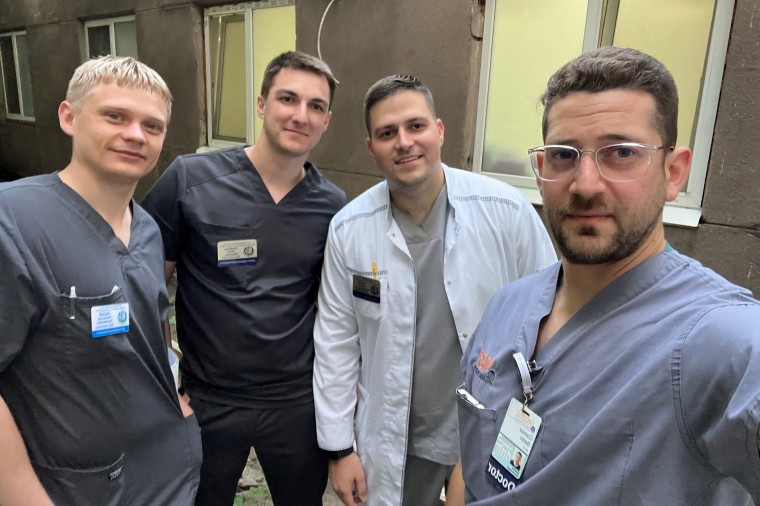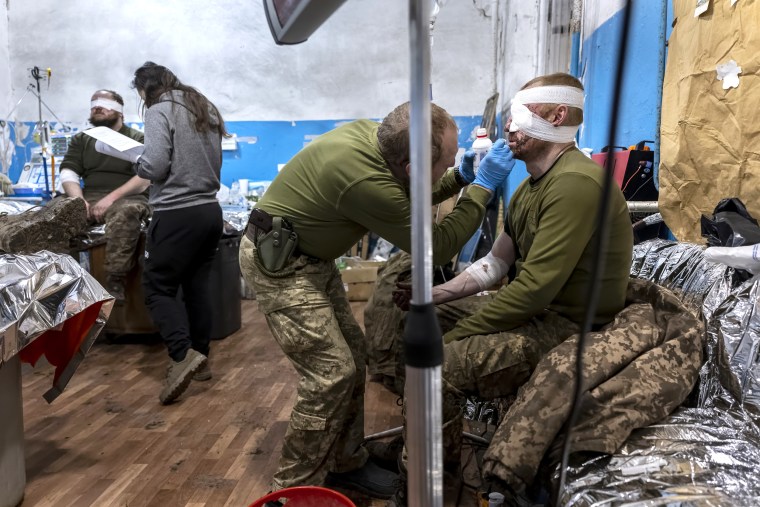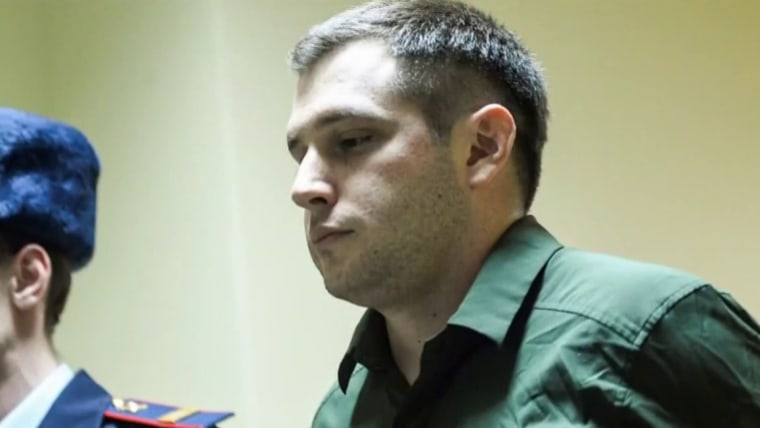How one American surgeon is bringing his skills to Ukraine
The first time Conor Berlin scrubbed into theater at Ukraine’s Mechnikov Hospital, he was given a hand-cranked neurosurgical drill that’s long been outmoded in the United States. The American’s task: using this “medieval” tool to operate on a Ukrainian soldier with horrific head injuries from a suspected land mine.
“His left eye socket was totally destroyed, completely gone, and we had to reconstruct that entirely,” said Berlin, 30, a resident brain surgeon at the University of Virginia, who is using his vacation time to volunteer in the city of Dnipro, less than 70 miles from the front line of Ukraine’s war against Russia. “Some of the traumatic injuries to soldiers we’re seeing every day here are unlike anything you will ever see in the United States.”
“The gruesomeness of what one man can do to another, it can be haunting,” he said.
Born in New York, Berlin is indelibly linked with Ukraine through his Jewish faith and his ancestors, who fled the country following a murderous, antisemitic pogrom more than 100 years ago. Today he believes he is the only neurosurgery resident from the U.S. operating there, giving him rare insight for an American into the human cost of the worst fighting in Europe since the end of World War II.

He sees dozens of bloodied, mutilated soldiers brought in on gurneys every night; staff juggling workloads outlandish even to overworked American health care professionals; intensive care units overflowing into hallways; water bottles used as IV bags; and bed sheets with holes cut in them for surgical drapes.
“The first day I came to the ICU, I almost cried,” said Berlin, who is volunteering through Razom, a New York-based nonprofit formed in 2014 to support Ukraine. “The ICU was just a converted operating theater, with five soldiers on ventilators who had suffered terrible, terrible maiming injuries.”
“I thought to myself: What more can these men and boys give to their country?” he remembered. “There is nothing left to give.”
Berlin stresses that he does not want to be pejorative about the Ukrainian tools or staff using them; he wants to highlight the skilled, passionate people desperately trying to help but too often being overwhelmed.
“They don’t have the fancy things that we have in the U.S., but despite their lack of resources, they still get the job done,” he said, emphasizing he has learned as much as he’s taught while working in the country. “They don’t complain; they are very adaptable, impressive individuals. And I’m very inspired by a lot of them.”
His July 11 arrival came days after Ukraine launched a grinding, attritional counteroffensive. The Ukrainians are making some progress, picking their way through minefields, but slower than some Western officials and experts expected.
Dnipro, around 240 miles southeast of Kyiv, has been bombed by Russia throughout this war and bears the scars of burned out buildings and dead residents. But most of the time it feels like a regular city, Berlin said, with locals going out to bars and restaurants and enjoying bucolic parks.

It is only from his vantage point, in the region’s main head trauma hospital, that he has seen firsthand what happens when modern weaponry meets the trenches, tanks and land mines of old, deployed on a scale Europe hoped it had long forgotten.
Estimates vary, with the U.S. in November putting each side’s casualties at around 100,000.
Mechnikov Hospital has seen 17,000 civilian and military casualties since the invasion, Berlin said. Doctors there told The Associated Press this month that the hospital is busier than ever, treating civilians by day for everything from cancer to car accidents, before becoming swamped at night by wounded soldiers sent directly from the front lines.
‘I hope others will be inspired’
Berlin has traced his family back to Ukraine, where in 1918 his great-great grandfather, Yankel, was killed in his backyard during a pogrom by locals. His great-grandmother, Lilly, fled to New York, giving birth to his grandmother, Ruth, along the way.
He sees an echo of his own family’s story of persecution and endurance in Ukraine’s fight against Russia, a conflict he describes as “purely good versus evil.”
The Ukrainians he is helping today “are clearly not the same people that punished my family over 100 years ago,” he said. “These are good people, freedom-loving people, democracy-loving people, kind, generous people, who deserve to live and deserve to have their country.”
But “if I can come to this country, after everything that happened in my family, and find it in my heart to come here and help them, then I hope that others will be inspired to do the same,” he said.
As well as the hand-powered drill, his photo diary shows him and colleagues using a “gigli saw” — a flexible but “primitive” cutting tool used to slice through bone. “We rarely use them in the U.S. nowadays, but in Ukraine sometimes that’s all that’s available,” he said. “It still gets the job done.”
The nurse- and doctor-to-patient ratios “are insane,” he said. “I am so inspired by them.”
Another of his photos shows him operating alongside Rostislav Malyi, a Ukrainian surgeon and fellow member of the self-styled “dream team” — as their four-person crew jokingly calls itself. When he started working at the hospital, he gave Malyi, 28, his University of Virginia scrub cap, as a gift.
“He always wears it now,” Berlin said in a message alongside the photo. “I have built a very strong bond with these guys. We are in the ‘trenches’ together.”


